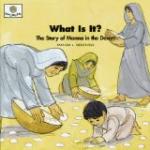Muffled ejaculations could be heard, little gurgles of laughter, which in Egypt, thanks be to Allah, do not degenerate into giggles, the swish of a whip in the shadow, followed by a woman’s cry, and through all, above all, unfinished catches of music.
All kinds of humans, including tourists, writers, European officials and desert dilettanti, have affixed every kind of adjective to Egypt’s music.
Ethereal, melancholy, wailing, plaintive, nebulous, and pathetic are but a few. Why—why try to tie a label to something which slips from the fingers even as they close about it? Why try to describe that which cannot be described? There is, or was, a certain line which in the heat of an Egyptian noon, or the stillness of an Egyptian night, when the first notes of a human voice, or stringed instrument, or rudely cut pipe-reed reach the ears, would creep out of some memory cell.
One loved the vagueness of those words:
“Out of the nowhere, into here!”
Loved the infinite space they opened up with their aloofness and indefiniteness, until, alas! they took concrete shape when chosen as title to the picture of a robust, Royal Academy, Fed-on-Virol looking babe, which doubtless, when trying to grab some passing Olympian butterfly, fell off the lap of the Gods into a sitting position upon Mother Earth.
Also, one thinks of that mist wraith which on a cloudless day stretched across some mountain’s breast, lies lightly upon the air, with diaphanous ends coming out of and going into nothingness; for in just such manner does the music fall across an Egyptian day or night.
These catches of music have no end, and no beginning; they rise, linger a moment, and are gone, leaving behind them an indescribable loneliness of soul, and a longing to stretch one’s hand back down the centuries to pluck their meaning from the past.
Under the sand, the granite, the marble, buried deep in the pyramids or merely covered by the earth of shallow graves, there must surely be many instruments of music wrought in gold or silver, studded in jewels, or cut out of humble wood; many strings still unbroken, and near them many whitened bones of dusky hands which, for all we know, at odd moments of day or night set those strings a-thrumming, or lift the reed pipes to ghostly lips.
Who knows but that the British Museum at night, rid at last of those who gape at Egypt’s dishonoured dead, may not be filled with snatches of music from throat or hand of those unfortunates, priest, priestess, fair woman and honoured man, dug out and laid upon a slab of grass for the education of the revellers of a wet Bank Holiday, or those others from Northern climes, who bid their snuffling, sticky progeny to “coom oop, lad, an’ look at t’ stuffed un!”
And on this night of which I write, music was caught up, and carried hither and hither upon the breeze which clittered the leaves of the palms, and softly moved the flowing robes of Hahmed the Arab, who, perfectly motionless, stood in the ink-black shadow cast by the bougainvillaea, which trailed its purple masses over the walls of the house, shining faintly pink under the silver moon.




